The gymnastics champion sprang to stardom at the 1984 Olympics, where she became the first American woman to win a gold medal in the all-around competition. Her family is raising money online, saying she lacks health insurance.

May Lou Retton at the 1984 Olympics, where she won five medals.
Mary Lou Retton, who became one of the most popular athletes in the country after winning the all-around women’s gymnastics competition at the 1984 Summer Olympics in Los Angeles, has pneumonia and is “fighting for her life” in the intensive care unit, her daughter said in a statement this week.
Retton’s daughter McKenna Lane Kelley said on Instagram that her mother “is not able to breathe on her own” and that she had been in the intensive care unit for more than a week.
Kelley asked for donations to help pay for her mother’s hospital bills, saying her mother lacked health insurance. By Wednesday, she had raised more than $260,000 online from more than 4,600 donors.
She did not share more specific information about her mother’s condition, though she said that her pneumonia was “a very rare form.” It was not clear what hospital Retton was in.
Kelley, who was a gymnast at Louisiana State University, did not immediately respond to a message seeking comment on Tuesday.
On Wednesday, another daughter, Shayla Kelley Schrepfer, released a video on Instagram thanking people for “all the love and support that you’ve given to my mom.”
“She’s still fighting,” Schrepfer said. “It’s going to be a day-by-day process, and we hope that you guys will respect her boundaries, as we want to keep the details between her and our family right now. She has been treated with the best of the best professionals here, and it has been such a blessing to have their hands on her.”
At the 1984 Olympics, Retton became the first American woman to win the all-around gold medal or any individual Olympic medal in gymnastics. Going into the final rotation of the competition, she was five-hundredths of a point behind Romania’s Ecaterina Szabo, and the only way she could beat Szabo was to score a perfect 10 on vault.
Retton scored a perfect 10.
She won five medals in Los Angeles, including two silvers, for team and vault, and two bronzes, for uneven bars and floor exercise.

Though there was an asterisk by Retton’s victory in the history books — the Soviet Union, which was the most dominant force in women’s gymnastics at the time, boycotted the 1984 Games — it nonetheless made her a sports hero in the United States. In addition to earning her the traditional trappings of Olympic gold, like appearing on a Wheaties box, she was widely viewed as an inspiration to a new generation of American girls entering gymnastics.
Even as the American gymnastics program grew and the country won more medals, including the team gold in 1996, Retton’s prominence remained: For 20 years, Retton, now 55, was the only American woman to win the all-around title, until Carly Patterson became the second in 2004.
Retton was born in Fairmont, W.Va., and got her start early, like many top gymnasts. By the time Retton was 7 years old, she was training in gymnastics full-time.
Retton’s talent had been apparent from the start, but a big break came at an Olympics elimination tournament in Reno, Nev., in 1982, where she impressed Bela Karolyi, who would go on to coach her in the 1984 Olympics.
“I immediately recognized the tremendous physical potential of this little kid,” Karolyi said in a March 1984 interview.
Retton appeared in a number of films and TV shows in the late 1980s and 1990s, including the comedy film “Scrooged.”
After her athletic career, Retton became a motivational speaker to promote the benefits of proper nutrition and regular exercise.
My Daughter Called Me Telling about a Screaming Woman in My Bedroom – I Rushed Home but Was Not Ready to See This

When Tammy gets a panicked phone call from her 13-year-old daughter, Piper, she does what any mother would do. She rushes home to make sure that everyone is okay, especially because Piper said that there was a woman with her husband, Paul, and they were locked in the master bedroom. But when Tammy gets home, she sees that not everything is what it seemed.
I was barely paying attention to the droning voice on the other end of the conference call when my phone vibrated violently on the table. It was Piper, my daughter. Heart skipping a beat, I excused myself from the call and answered quickly.

A woman holding a phone | Source: Unsplash
“Mommy, please come home, there’s a woman screaming!” Piper’s voice trembled with fear.
Panic surged through me.
“Honey, where’s Dad? Wasn’t he supposed to pick you up from school today?”

A shocked woman | Source: Unsplash
My daughter hesitated, sighing deeply before she continued.
“Dad is here! He’s in your room! He and the woman are in your room,” she replied, a note of confusion in her voice.
Piper was 13; she was still innocent to the world and everything that came with it.

Teenage girl on the phone | Source: Pexels
But hearing her, my heart started racing.
“Baby, stay where you are. I’m coming right now.”
I quickly returned to my conference call, saying that I had a family emergency to get to. I pulled my keys off the Lego hook Piper had made me, and left the office immediately.
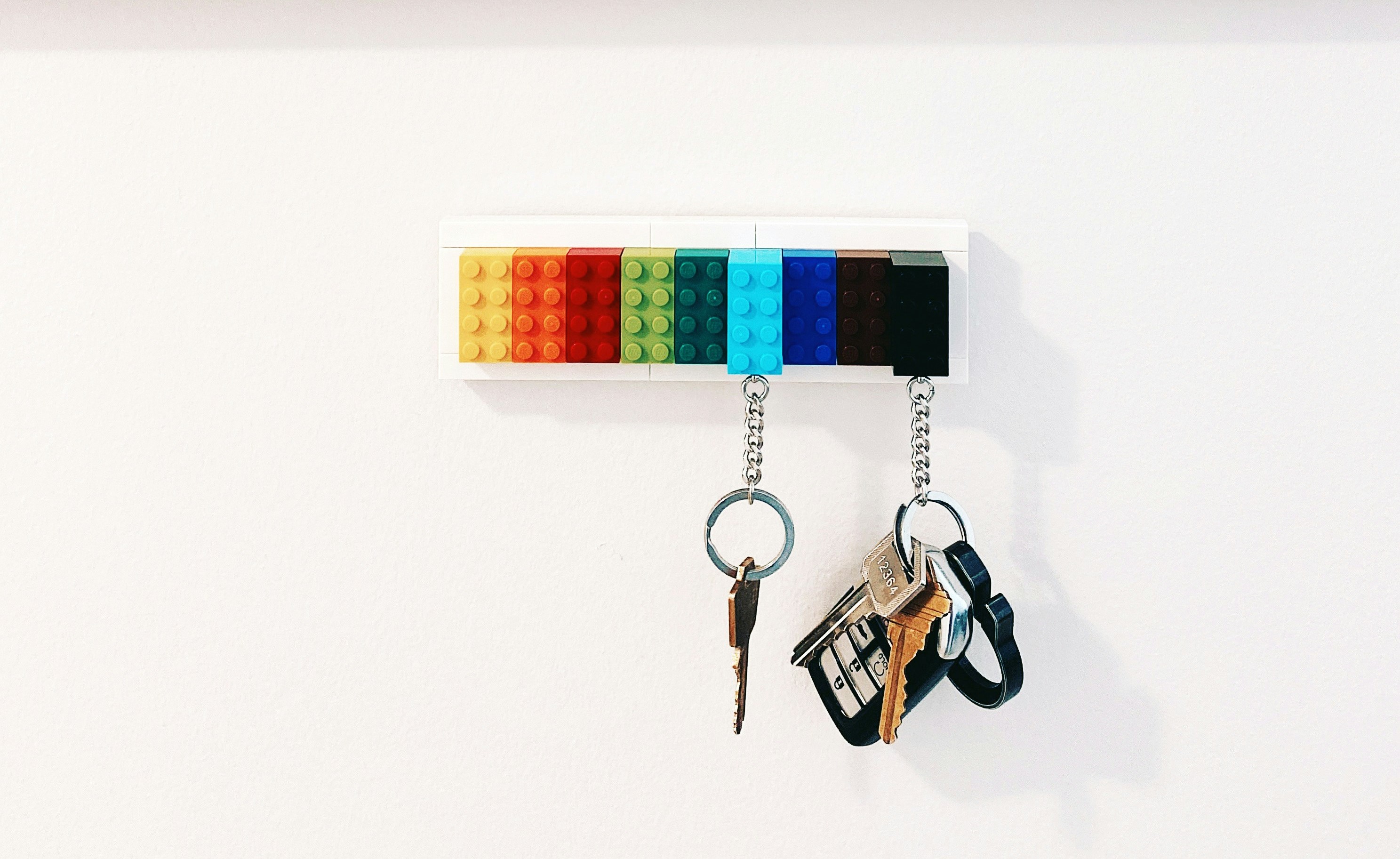
Car keys hanging on a hook | Source: Unsplash
Thoughts of betrayal sliced through me as I sped home.
But it made no sense, Paul was the most considerate person I had ever met. And he was the complete opposite of me. Paul was warm and loving, whereas I could be cold and straightforward.

A smiling man sitting outside | Source: Unsplash
He was into alternative medicine and healing and knew everything he could about crystals and the like. He healed through his hands. There was no way that he would willingly hurt me like this.
But then again, my daughter was in the house. And Piper wouldn’t lie about this.

Assorted crystals | Source: Pexels
Is he really cheating on me? I thought as I gripped the steering wheel. With our daughter right in the house?
It would be unforgivable. It would be the end. I would leave Paul and never go back.
As I sat at a red light, I thought about what Piper was thinking. Surely, hearing a random woman scream was enough to shake her to her core.
Twenty frantic minutes later, I pulled into the driveway, nearly colliding with the mailbox in my haste. Now that I was here, my panic had intensified deeper.

A red traffic light | Source: Unsplash
I thought about looking for Piper first, but I didn’t want to alert Paul and his guest to my presence. I wanted to catch him in the act.
I took my phone out of my handbag and was ready to confront the worst. I had my camera recording. I heard sounds coming from my bedroom, followed by a woman’s loud whimper.

A woman holding a phone | Source: Unsplash
Pushing open the door, the scene before me halted me in my tracks.
Paul, my husband, was massaging a woman in our room.
But it wasn’t what it seemed; that was clear. My husband’s hands were professional and focused.

An opened bedroom door | Source: Unsplash
My husband worked as a masseur and reiki master, and while he had his own rooms, sometimes clients would come home for their appointments.
But this was the first time that he had set up his table in our bedroom. Then it dawned on me; we were renovating Paul’s office outside the house.
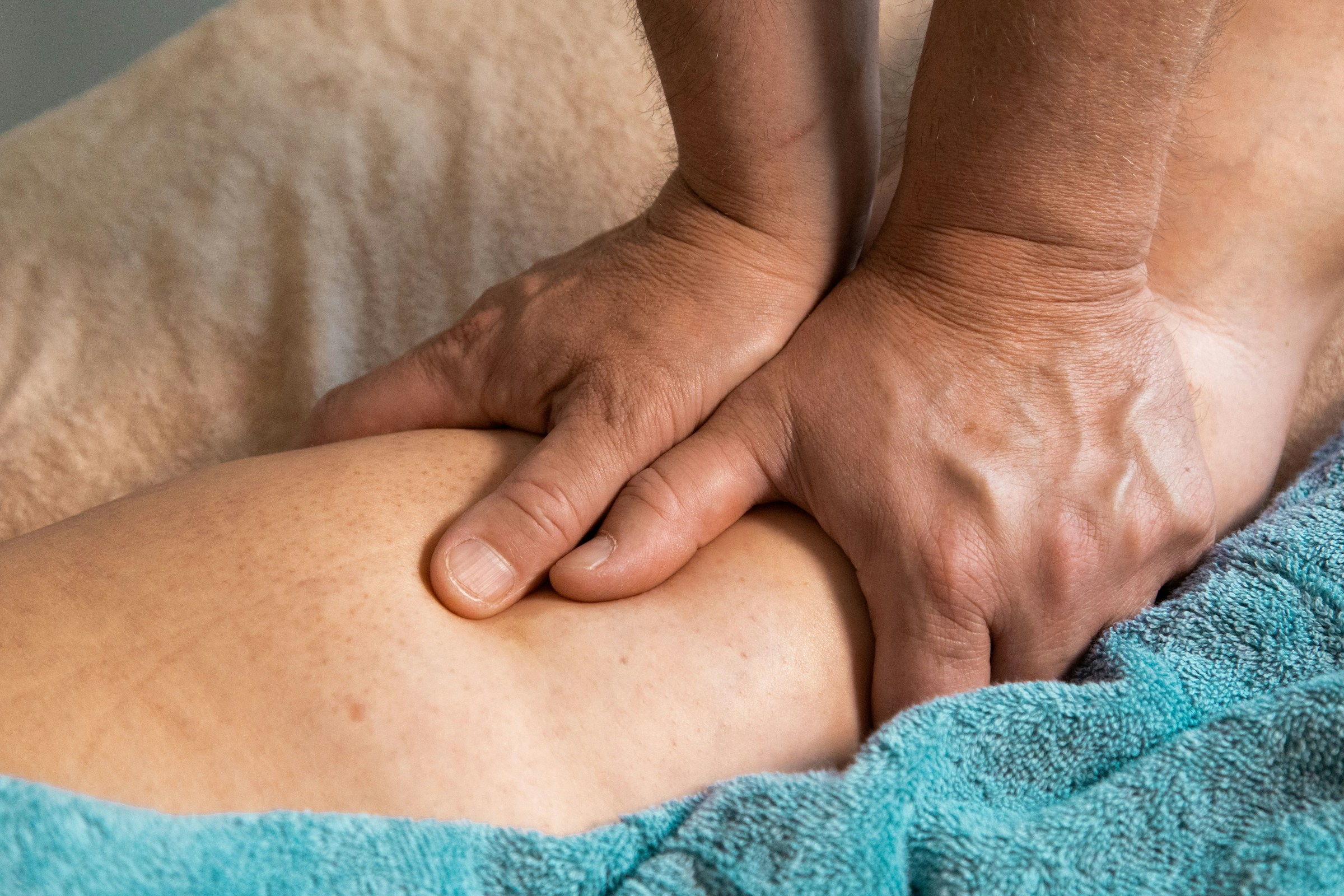
A person giving a massage | Source: Unsplash
Of course, he had no other place to work from home. He had all these ideas about turning our garden cottage into an entire Zen space for himself.
But our contractors were working at their own pace, and the project was taking a lot longer than it should have.
At the sound of my gasp, they both turned and jerked in surprise.

A home renovation | Source: Unsplash
“I’m so, so sorry,” I stuttered, the blood draining from my face as I realized the gravity of my misunderstanding.
Turning off the camera, I felt a rush of embarrassment.
I went to Piper’s room and found her sitting under the covers with a book.

An embarrassed woman blocking her face | Source: Unsplash
“Come on, sweetheart,” I said. “Let’s go make some cookies.”
I needed to do something with my hands. I felt an impossible sense of guilt. I should have known that Paul would never cheat on me; he just wasn’t that type of man. If he was feeling unfulfilled in any way, then he would have told me straight out, rather than betray me.

Mom talking to daughter | Source: Pexels
But it was more than that; Paul was an incredible father, and he always ensured that Piper was taken care of first. It was one of the reasons that he was renovating the space outside, so that he could always be around for her.
The thought of Paul doing anything unsavory in front of our child was unheard of, and yet I still believed it.

A father and daughter duo | Source: Unsplash
But as I went about taking all the cookie ingredients out, I realized that I was justified in my feelings.
I reacted as any mother would. I reacted to the panic of my daughter, however misunderstood it now was.
I knew what I needed to do. I needed to explain it all to Piper; she needed to know that there was nothing wrong with Paul’s actions.
“Honey, do you know what Dad does for work?” I asked, trying to smooth over the confusion in her mind.

Baking ingredients | Source: Unsplash
“Yes, he massages people, right?” she said, picking her way through the chocolate chips.
“So, the woman upstairs, she’s one of Dad’s clients,” I continued gently.
“Okay,” she said quietly.
I measured the flour as Piper helped herself to a glass of milk.
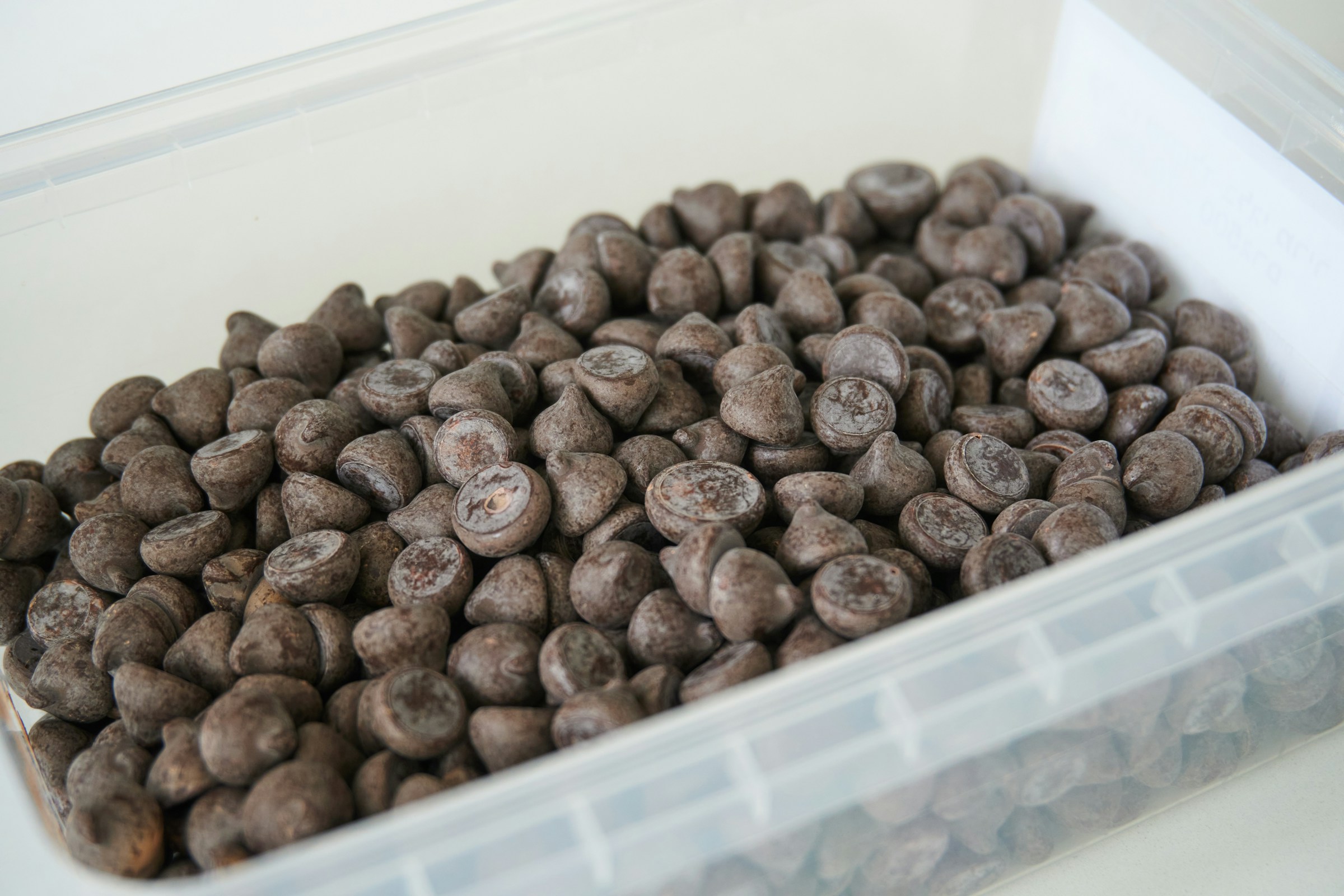
A container of chocolate chips | Source: Unsplash
“But then, why was she screaming?” my daughter asked. “Was Dad hurting her? Isn’t a massage supposed to feel good? I know how you feel when Dad massages your feet.”
I stood beside her and gently bumped my hip to hers.
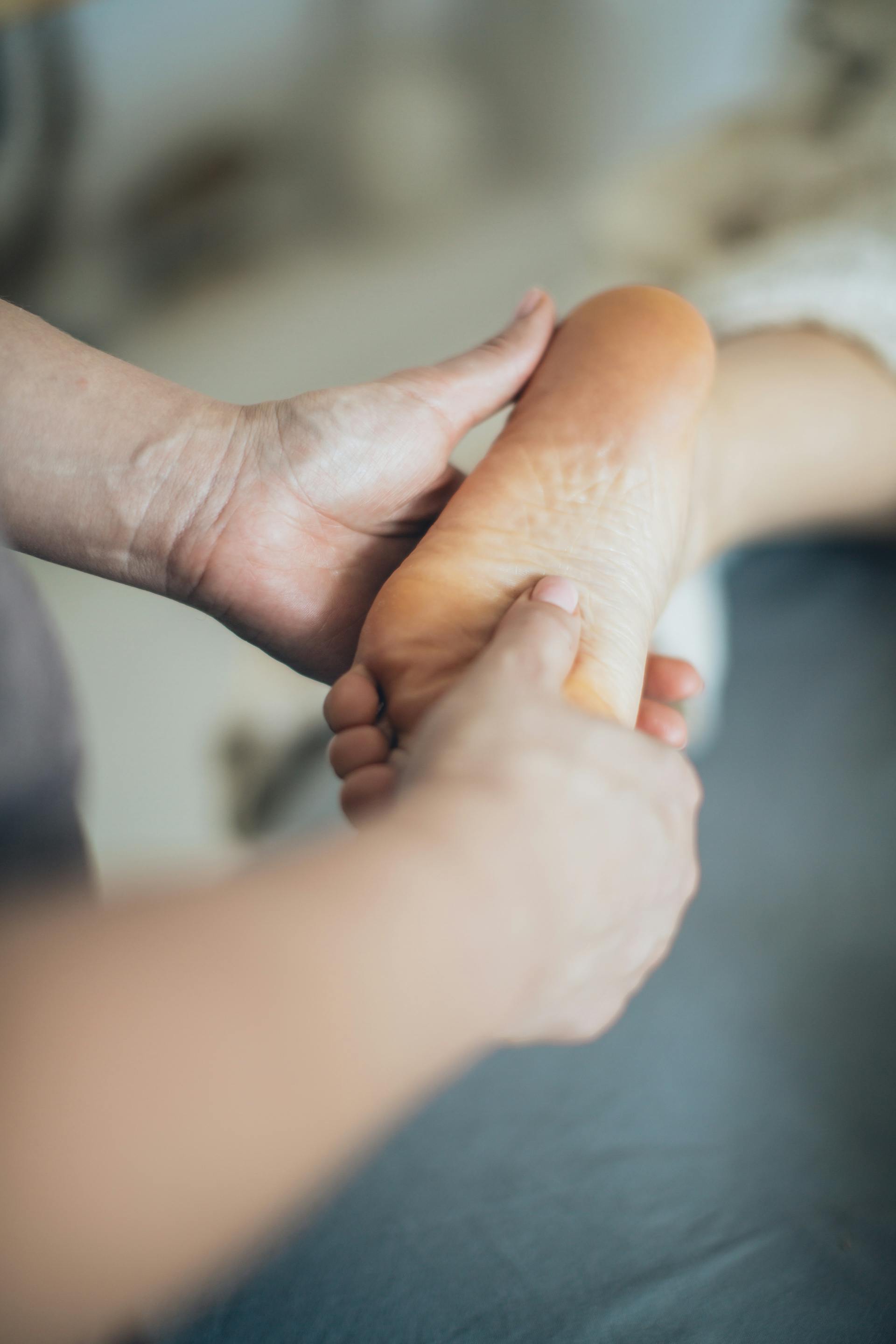
A person getting a foot massage | Source: Pexels
“Well, some massages are a bit more intense, honey. You can ask Dad when he’s done, and he can explain it to you. You know, once, Dad did an anticellulite massage for me; I screamed the entire time because it was so painful, but it helped me! If the woman was screaming, it wasn’t meant to hurt her beyond helping her heal.”
Piper looked at me for a moment and then nodded.

A person getting a massage | Source: Pexels
“Dad wasn’t doing anything wrong,” I said as I put the first batch of cookies into the oven.
“Why did Dad do it here?” she asked, her mind still racing.
“You can ask Dad, but maybe she just needed to see him today. And he wasn’t at his rooms, remember? He needed to pick you up from school.”

School parking lot | Source: Unsplash
Piper looked down at the counter and added chocolate chips to her milk. Not that they would do anything to the flavor.
Finally, she seemed satisfied with all my answers.
I washed the dishes while the cookies baked. Piper told me all about her day at school and how much she loved her new art class.
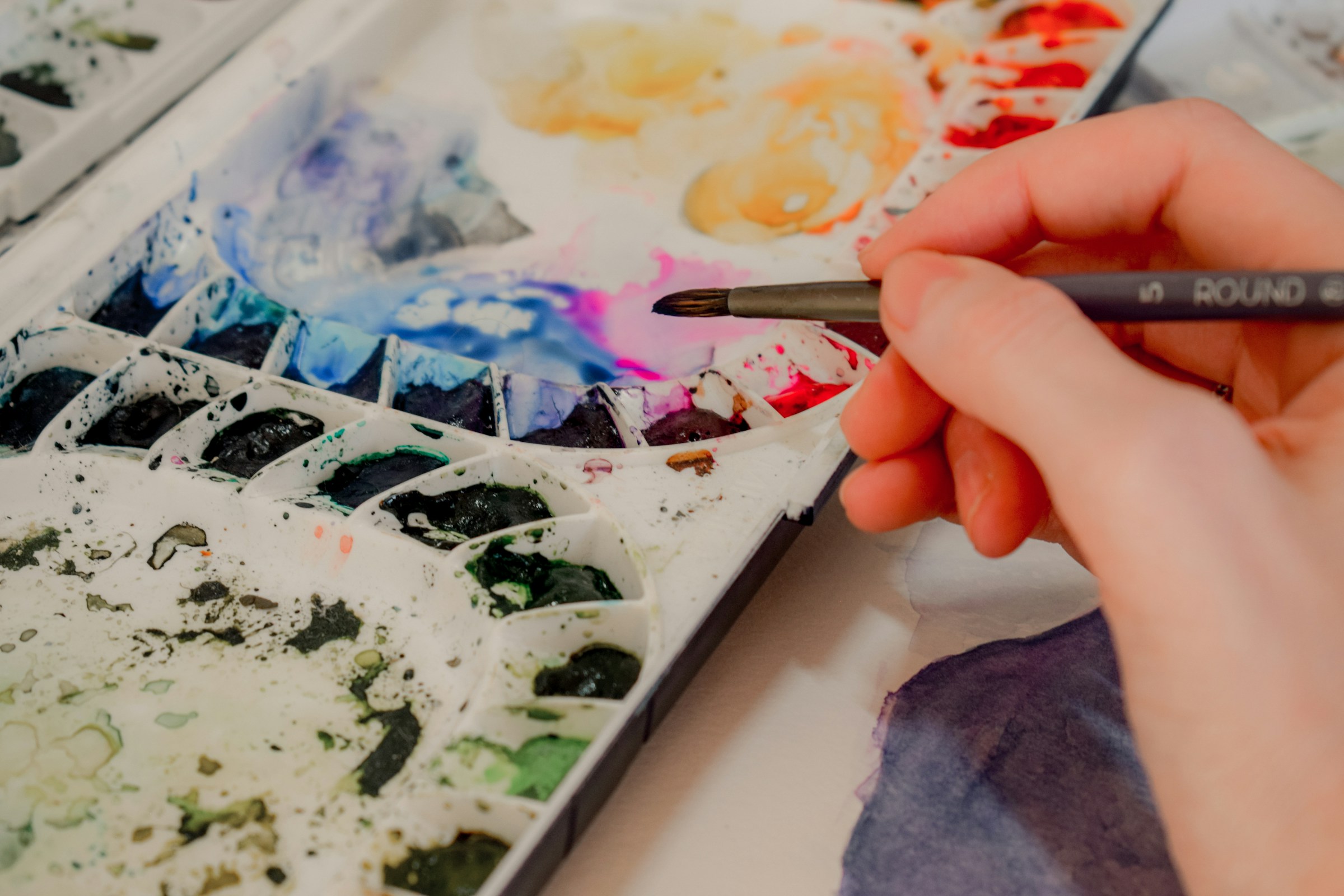
A person using paint | Source: Unsplash
“We can do whatever we want, Mom!” she said. “Like, today, we were told to paint something with the color blue. That was the theme, and we could do whatever we wanted within those lines.”
As the oven bell went off, I took the cookies out and left them for Piper.

Woman taking out cookies | Source: Pexels
I went back upstairs, ready to apologize to my husband and the woman once again. As I entered my bedroom, Paul was wrapping up and folding the towels. The client, now dressed, offered an awkward apology before leaving, her cheeks flushed with embarrassment.
Once we were alone, I approached Paul, who was blowing off the candles with more force than necessary.

Lit candles | Source: Unsplash
“Paul, I’m so sorry,” I began. “I thought the worst. I feared the worst. I fed off Piper’s energy because she didn’t know what was happening, so I was terrified at the panic in her voice.”
My husband stopped and looked at me, his expression softening.
“I saw the look on your face, Tammy,” he said. “I should have realized how this looked and warned you. I should have explained it to Piper, too. Cheryl is very loud when it comes to these things.”

Couple talking | Source: Pexels
“You need to talk to Piper,” I said. “I think she understands, but at the same time, it would make more sense coming from you. She’ll feel comforted.”
My husband enveloped me into a bear hug.
We held each other, the earlier adrenaline giving way to a shaky relief.
“Let’s just make sure we talk more, okay? I never want to feel that way again,” I murmured into his chest.
As we disconnected from the embrace, I felt the tension dissipate. We had stumbled, yes, but we had also found our way back to trust.

A couple embracing | Source: Pexels
We went downstairs, and Paul took out a tub of vanilla ice cream to make ice cream sandwiches.
Paul was going to talk to Piper, and I was going to shower to give them some space.
I knew that he would make her understand everything properly.

Ice cream sandwiches | Source: Unsplash
What would you have done?

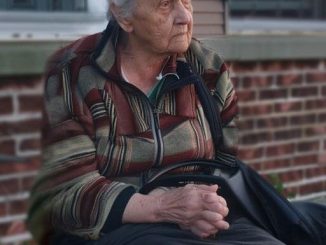

Leave a Reply